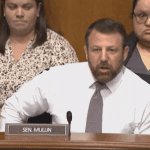
“Girls, let’s try something different,” the activity days leader suggested to her 9-11-year-olds. Gossip-giggling sessions are what girls that age just do. “Let’s try nice gossip. Choose the nicest things we know about people and gossip about those.” The girls’ gossip was louder and more giggly than ever. After leaving the room briefly, they came back shrieking with laughter. “We’ve been nice gossiping about you!” The leader almost cried at the funny/affectionate comments. Positive acceptance with mutual respect is how Christ would have us treat each other: contention disappears with positive relationships.
Respecting Individuals
Neil L. Andersen warned that with “social media and information superhighways, one person’s voice can be multiplied exponentially. That voice, whether true or false, whether fair or prejudicial, whether kind or cruel, moves instantly across the world.” 1
He praised positive posts and pleaded for more: “Thoughtfulness and goodness are often quietly under the radar, while words of contempt and anger are frequently thundering in our ears.”
David A. Bednar called for action—to “sweep the earth with messages filled with righteousness and truth, messages that are authentic, edifying, and praiseworthy . . . as with a flood.”
He specified: “ to edify and uplift, rather than to argue, debate, condemn, or belittle.” 2 Technology well used can promote mutual respect.
The “good gossip” of the primary girls could be extended online, along with personal compliments and tributes, inspiring quotations, favorite scriptures, personal encouragement for those who are struggling—among countless types of messages based in mutual respect.
In his talk “Peacemakers Needed,” Russell M. Nelson included all aspects of personal communication. “Let us show that there is a peaceful, respectful way to resolve complex issues and an enlightened way to work out disagreements.” He added,
How we speak to and about others at home, at church, at work, and online really matters. Today, I am asking [all] to interact with others in a higher, holier way . . . “If there is anything virtuous, lovely, or of good report or praiseworthy” that we can say about another person—whether to his face or behind her back—that should be our standard of communication. 3
Respecting Differences
The Savior’s parable of the Good Samaritan is a powerful example of the second greatest commandment, loving our “neighbors” everywhere, echoing through centuries of Christianity.
Melvin J. Ballard commented, “[Christ’s] deliberate use of Jews and Samaritans clearly teaches that we are all neighbors and that we should love, esteem, respect, and serve one another despite our deepest differences—including religious, political, and cultural differences.” 4
He quoted Gordon B. Hinckley, “Each of us is an individual. . . . There must be respect for [our] differences … We must work harder to build mutual respect.”
We think easily of the differences mentioned by Elder Ballard. Let’s consider another kind of difference that causes heartbreaking disrespect—the struggles of individuals with disabilities. Two of them, though young, influenced respect worldwide.
At the age of 7, Ava Beese, who is deaf, loved friends in her school in England who learned sign language to communicate with her. They didn’t aways completely understand each other, but with mutual respect, and occasional help from Ava’s sign language interpreter, they got along just fine.
Ava was completely accepted and joined them in doing things 7-year-old girls like to do. She wrote, “I’m the only deaf child at my Primary school—at first, I didn’t notice that I was different from the other students, but as I’ve got older, I’ve learned that I’m unique.”
Though only seven, Ava co-authored a book with her parents to help other children learn what it’s like to be deaf and how friends can make so much difference in their lives. Written from Ava’s viewpoint and in her voice, I’m Proud to Be Deaf 4 treats deafness as Ava and her family do—as a characteristic, not a “disability.”
Naoki Higashida has severe autism. As a boy, he had no speech or way to interact with others. He could not hold spoken language in his mind or process it. But he could read and write by memorizing shapes of words, although their sounds meant nothing to him. He went to a regular Japanese school and loved to read and write.
With a chart of letter and word shapes made by his mother, at age 13 Naoki wrote The Reason I Jump: The Inner Voice of a Thirteen-Year-Old Boy with Autism to help people of all ages understand and accept autistic individuals.
This book has been an international best seller, translated into more than 30 languages. Naoki kept writing, and now, as an adult, he is among Japan’s most popular authors.
He has limited speech but avoids using it. He can interact to a degree with others, but prefers not to. However, he is known and respected worldwide. 5
Reaching Mutual Respect with Christ
Dallin H. Oaks referred to a parable: “His kingdom is “like leaven,” whose function is to raise the whole mass by its influence.” 6 As we commit ourselves to Him, He invites us to become part of that leaven—for the entire world.
As Russell M. Nelson explained, “The Savior’s . . . true disciples build, lift, encourage, persuade, and inspire—no matter how difficult the situation.” 7 Mass raising isn’t easy. The extent of difficult situations can be understood only by Christ, who bore them all.
What a blessing and responsibility to be a leaven particle. As President Nelson assured, the “gospel net” has ”room for everyone.” But mutual respect is required: “There is no room for prejudice, condemnation, or contention of any kind.” 8
Struggles may be hard and long. But if we are with God, with Him we will prevail.














